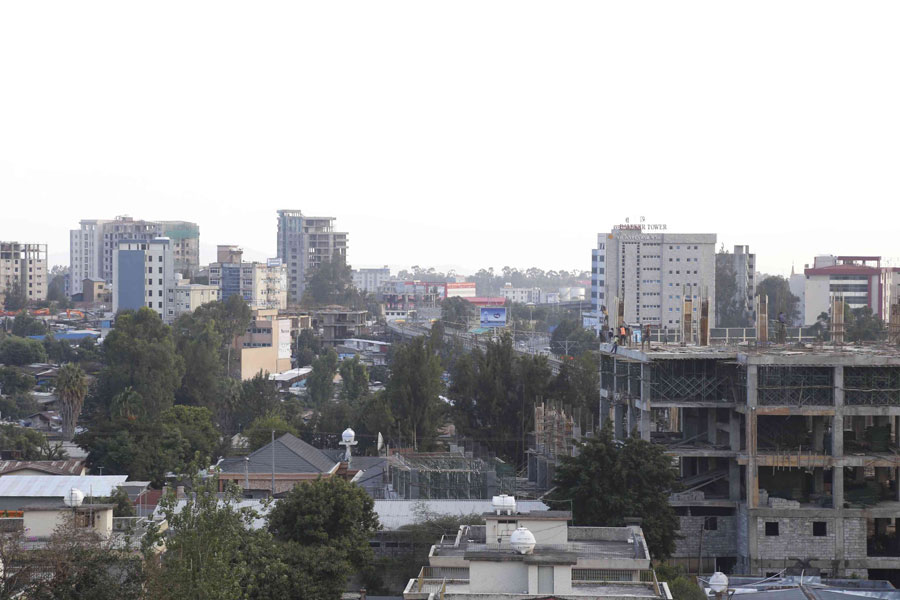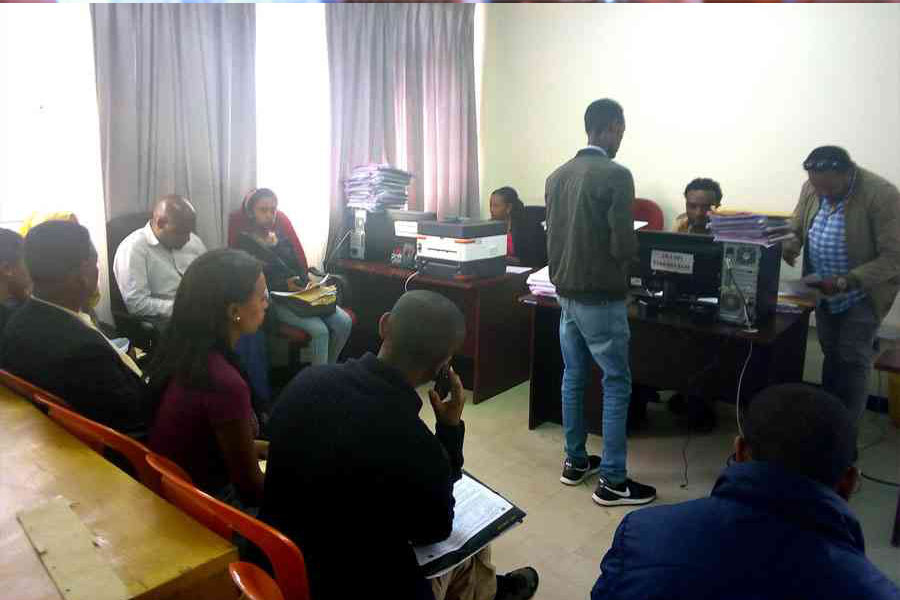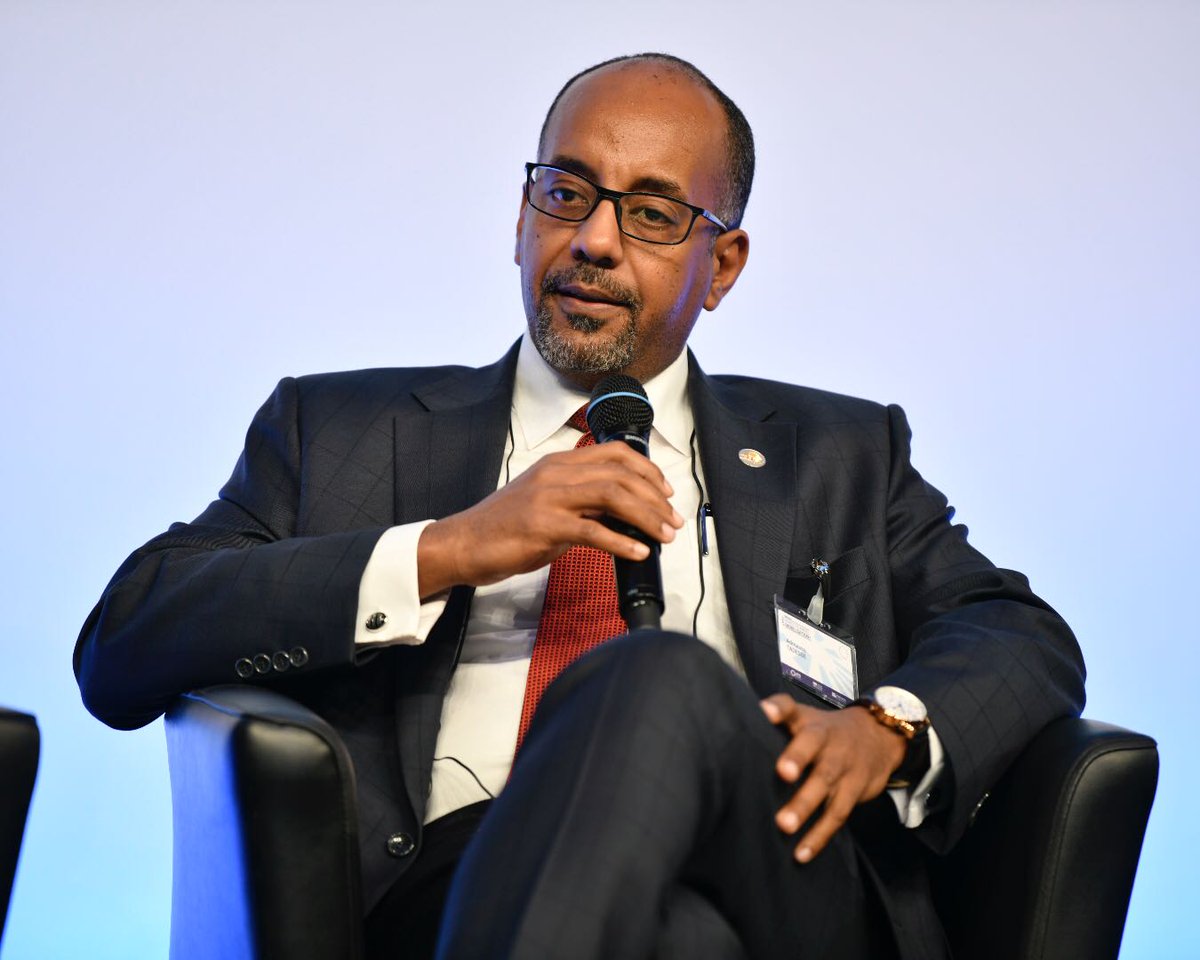
Fortune News | Feb 25,2023
Ethiopian Roads Administration (ERA) is under treacherous terrain, terminating 32 road construction projects and suspending an additional 52 projects due to an array of obstacles. Security concerns, supply chain disruptions, budgetary shortfalls and surging compensation claims have cast a shadow over the Administration's mandate of overseeing the construction and maintenance of approximately 30,000Km of roads across the country.
Mohammed Abdurahman, director general of the Administration, presented last week a six-month performance report to the Standing Committee of Urban Infrastructure & Transport Affairs, chaired by Shewit Shanka. The report laid bare the extent of the crisis on the severe undersupply of construction inputs.
Only 14pc of the nearly 680,000tns of cement demanded by projects were delivered and a mere 39pc of the demand for fuel was met. The 238 renovation and construction road projects, currently spanning 16,599Km under the Administration face additional difficulties arising from a shortfall in financing from the Chinese Exim Bank and Saudi Arabia. Compounding the issues is a sharp increase in construction input costs, soaring by 263pc over the past three years.
"We'll have to revise how our contracts handle these kinds of price changes," said Mohammed.
Exit strategies are currently under formulation as the Administration endeavours to finalise projects either lagging for an extended period despite nearing completion or those de facto terminated.
Sisay Bekele, deputy director of Corporate Services, observes a sharp rise in prices of steel and the underproduction of cement as pressure points delaying project completion dates. He observes a potential remedy in joint ventures such as Lemi National Cement Factory. With a budget of 600 million dollars, the factory constructed under East African Holding and the Chinese West International Holding is touted to boost the country's cement supply if it begins operation.
"It'll address most of the shortage," Sisay told Fortune.
Annual demand for cement in Ethiopia hovers around 36 million tons, with the existing 18 cement factories supplying less than half of that amount due to input shortages and obscure distribution channels.
While the Administration's operating budget reached a record high of 75.6 billion Br, the proliferation of compensation disputes further constrains its efficacy. It is facing 635 compensation cases valued at 13.5 billion Br, with 49 right-of-way cases valued at around 191 million Br ruled against the Administration.
The report further alleges that groups in Qelem and Horo Gudru towns in Wellega Zone, Oromia Regional State have been taking advantage of the security gap to have court decisions ruled in their favour and subsequently withdrawing money from the Administration's accounts.
"There seems to be more of a desire for compensation than infrastructure in some areas," said Dejene Fekadu, deputy director.
This sentiment was outright rejected by Teshome Wale, deputy chair of the Standing Committee, who, in contrast, observed an ever-increasing demand for development across the country.
"People are willing to relocate even without compensation," he underscored.
Dejene emphasised the challenge of staff abductions and significant transportation hurdles faced by the 25 project offices. He revealed that Administration staff work under constant threats, opting to use public transport to avoid detection.
"Getting construction input to sites is quite challenging," Dejene told Fortune.
Despite the myriad of challenges, the Administration built around 279Km of new roads and provided strengthening and renovation to approximately a quarter of its targeted 1,564Km. However, 41pc of projects operated at less than half of the planned capacity, with 20pc lacking both planning and implementation.
Renovations in the Kombolcha town, Amhara Regional State, which suffered severe damage from the conflict in the north were not able to commence while those in Debre Markos town faced delays due to ongoing instability. Similar projects in Shashemene town Oromia Regional State were pushed back due to heavy rainfall over the past six months.
Out of the 36.61 billion Br budget for spending in the first half of the year, the Administration managed to utilize around 63pc, which did not sit well with the Committee chair. Shewit urged better resource utilisation and a need to squeeze the maximum out of its allocated budget.
While acknowledging efforts in engaging stakeholders, digitisation and asphalt procurement, Shewit stressed the importance of enhancing research and training capabilities for improved project management.
"Some issues like security might be out of your control," she said, "but identical excuses should not be forwarded for every project delay."
An MP from the incumbent party in Gatra town Oromia Regional State was the only member who forwarded questions. Nurzeman Jebril implored the Administration to reimagine strategies to meet evolving setbacks.
"Why don't you prioritise projects in relatively peaceful areas?" he asked.
Dejene responded that prevailing security conditions and the aftermath of war have forced a revision of previous procedures.
"We're currently managing crises, not projects," said Dejene.
A pervasive lack of capacity in contractors, with 25 domestic and 11 foreign contractors performing at less than 50pc of the scheduled plans was cited as another predicament.
The urgent need for strategic reevaluation, enhanced professionalism, and a holistic approach to address the issues facing Ethiopia's road infrastructure development becomes increasingly apparent.
Experts such as Abebe Dinku (Prof) underscored a lack of professionalism among consultants, contractors, and the Administration as a major cause of project delays. He emphasised the need for realistic contracts and highlighted the problematic relationship between professionals, which usually leads to impractical terms.
According to Abebe, most public construction contracts are defined by government budget schedules of less than 18 months, avoiding possible price revaluations. He said most of the contracts mediated by consultants lack basic theoretical considerations of right of way, time and budget, fueling project delays.
"Unrealisable targets are set seemingly on purpose," he told Fortune.
PUBLISHED ON
Jan 27,2024 [ VOL
24 , NO
1239]

Fortune News | Feb 25,2023

Agenda | Dec 23,2023

Featured | Jun 21,2021

Radar | Oct 01,2022

Exclusive Interviews | Nov 21,2018

Dec 22 , 2024 . By TIZITA SHEWAFERAW
Charged with transforming colossal state-owned enterprises into modern and competitiv...

Aug 18 , 2024 . By AKSAH ITALO
Although predictable Yonas Zerihun's job in the ride-hailing service is not immune to...

Jul 28 , 2024 . By TIZITA SHEWAFERAW
Unhabitual, perhaps too many, Samuel Gebreyohannes, 38, used to occasionally enjoy a couple of beers at breakfast. However, he recently swit...

Jul 13 , 2024 . By AKSAH ITALO
Investors who rely on tractors, trucks, and field vehicles for commuting, transporting commodities, and f...

Jun 28 , 2025
Meseret Damtie, the assertive auditor general, has never been shy about naming names...

Jun 21 , 2025
A well-worn adage says, “Budget is not destiny, but it is direction.” Examining t...

Jun 14 , 2025
Yet again, the Horn of Africa is bracing for trouble. A region already frayed by wars...

Jun 7 , 2025
Few promises shine brighter in Addis Abeba than the pledge of a roof for every family...